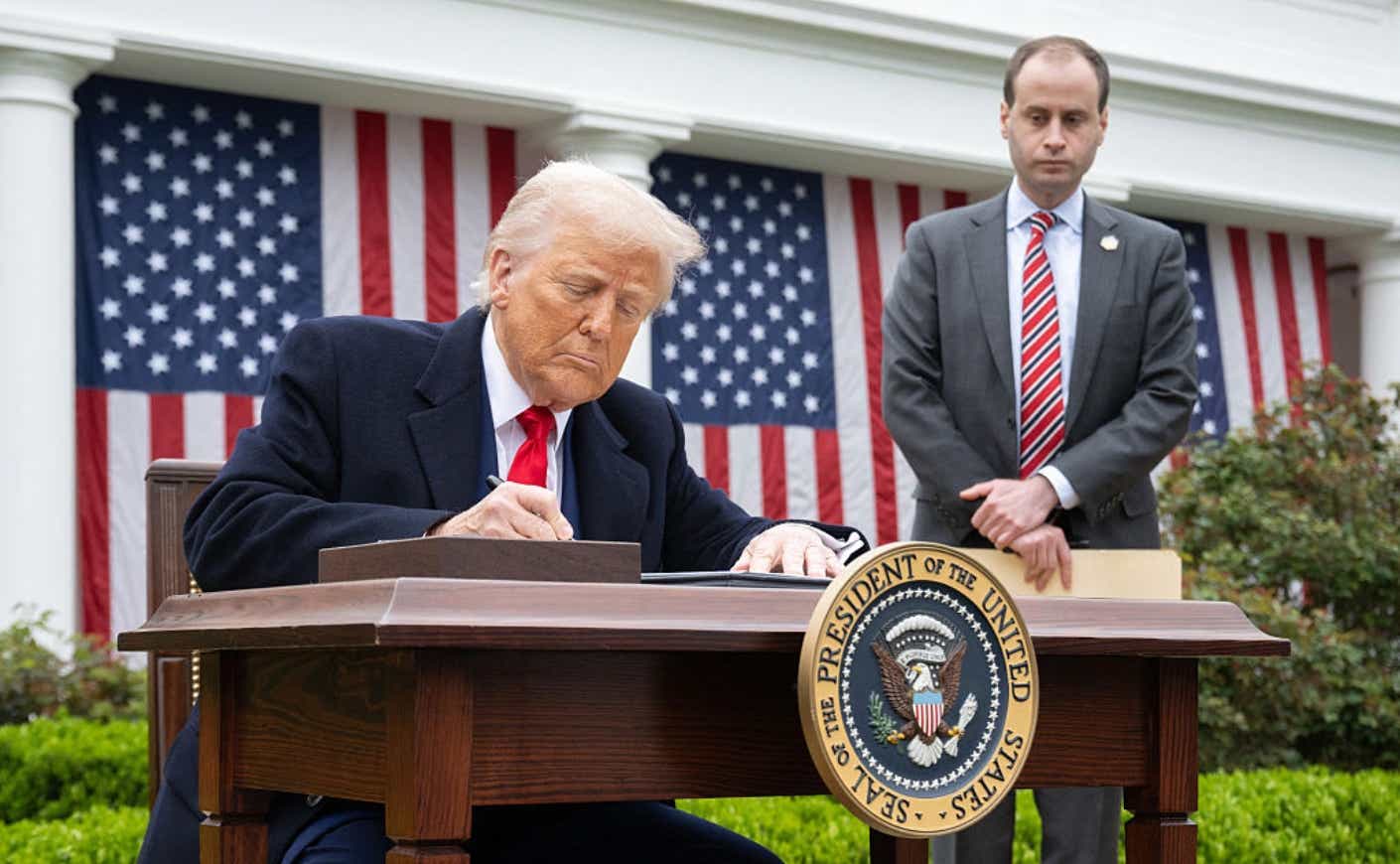Countries around the world are showing a united front in response to President Trump’s sweeping tariffs last week.
Following China and Canada’s lead, the European Union is expected to approve its first round of retaliatory tariffs against the U.S., targeting everything from dental floss to wine. The 27-nation bloc, which includes France and Germany, now faces U.S. import tariffs of 25 percent on cars, steel, and aluminum — and an additional 20 percent on nearly all other goods.
But could Trump still hold the upper hand? His aides claim that he's being flooded with requests for trade talks. So far, the White House has offered conflicting messages on whether the president is even open to talks. Some aides insist the tariffs are non-negotiable, while the president himself has called them a “great power to negotiate.”
This mixed messaging has stirred uneasiness within the GOP, with Sen. Ted Cruz warning that Republicans could face a "bloodbath" in the 2026 midterms if Trump’s trade war triggers a recession.
We’re taking a closer look at what’s really going on.
What is the EU planning in response to Trump’s tariffs?
On Monday, the European Commission, which oversees EU trade policy, is expected to propose a targeted list of U.S. products for additional tariffs in response to Trump’s measures — opting for selective duties rather than sweeping, reciprocal levies. Alongside items like dental floss and wine, the list could include goods that were in short supply during the pandemic, such as toilet paper, as well as chewing gum and vacuum cleaners.
One item drawing particular attention is bourbon, which could face a steep 50 percent tariff. If the EU moves forward with the plan, Trump may retaliate with a $200 tariff on European alcoholic beverages — sparking concern among major wine exporters like France and Italy, who are urging a more cautious approach. According to CNBC, French President Emmanuel Macron has even suggested that European companies suspend investments in the U.S. until "things are clarified."
Despite these tensions, the initial round of EU counter-tariffs is expected to pass when it comes to a vote on Wednesday. (A qualified majority requires the opposition of at least 15 member states representing 65 percent of the EU population — a threshold unlikely to be met.)
The tariffs will be rolled out in two stages, with the first round set to take effect by April 15 and the remainder expected about a month later.
Will Trump back down on the trade war?
Whether Trump will try to negotiate over trade tariffs remains unclear. As stock markets plunged for a second straight day on Friday, Trump posted a video on his platform, Truth Social, claiming that his tariffs were deliberately designed to hit the stock market as a way to force lower interest rates. The clip even claims that billionaire Warren Buffett called Trump’s moves “the best economic moves he’s seen in over 50 years” — though Buffett never actually said that. In fact, he once described Trump’s proposed tariff regime as an “act of war.”
Still, the post fueled debate over whether Trump's tariffs could be a negotiating tactic that could eventually lead to tariff relief in exchange for concessions from other countries — or whether they represent a permanent new trade regime. Commerce Secretary Howard Lutnick suggested it could be the latter, telling CBS’ Face the Nation on Sunday that the tariffs “are definitely going to stay in place for days and weeks.”
But other White House officials have a different view, suggesting talks are still very much on the table. Treasury Secretary Scott Bessent said Trump has “created maximum leverage for himself,” while Agriculture Secretary Brooke Rollins claimed that roughly 50 countries — reportedly including India and Israel — have been “burning up the phone lines into the White House.”
To make things even more confusing, Trump’s billionaire adviser, Elon Musk, said on Saturday that he hoped for a “zero-tariff situation” between the U.S. and Europe. However, Trump’s trade adviser, Peter Navarro, downplayed any tension between Trump and Musk, telling Fox News’ Sunday Morning Futures, “There is no rift here.”
Amid all of this uncertainty, Trump’s pushing for calm. Over the weekend, he urged Americans to “hang tough,” posting on Truth Social: “THIS IS AN ECONOMIC REVOLUTION, AND WE WILL WIN. HANG TOUGH, it won’t be easy, but the end result will be historic.”









